1/5




Ibuprofen Coated or Film Coated Tablets Bp 200mg Antipyretic and Analgesic Drugs
$0.90 / Bags
- FOB Price:
- Negotiable | Get Latest Price
- Order Quantity:
- 1 Set / Sets
- Supply Ability:
- 1000 Set / Sets per Month
- Port:
- shanghai
- Payment Terms:
- T/T L/C D/P D/A Credit Card PayPal Cash Escrow Other
- Delivery Detail:
- 5 days
Hot in store
-
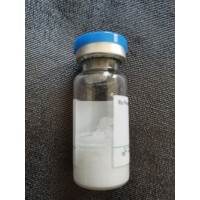
Western Medicine Glutathione Lyophilized
$1.00 -
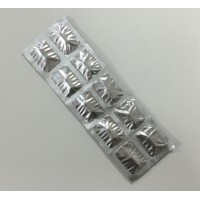
Proton Pump Inhibiters Gastric Reducer O
$1.56 -
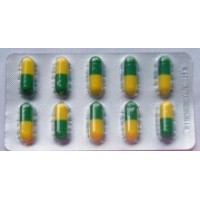
Finished Medicie Pharmaceutical Capsules
$0.88 -
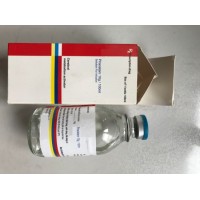
Western Medicine Cerebral Metabolism Act
$0.53 -
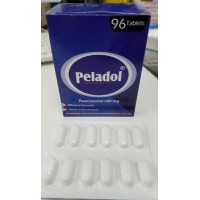
Western Medicine Paracetamol Tablets 500
$0.38 -
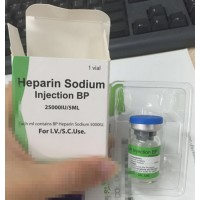
Heparin Sodium 25 000 I. U. /Ml Solutio
$1.30 -
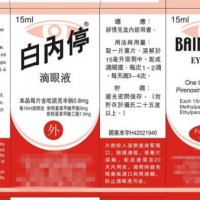
Western Medicine GMP Pirenoxine Sodium E
Inquiry -
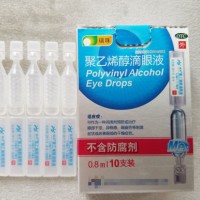
Western Medicine Polyvinyl Alcohol Eye D
$0.58
Product Details
Product Name: Ibuprofen Coated or Film Coated Tablets Bp 200mg Antipyretic and Analgesic Drugs Model NO.: 200mg Pharmaceutical Technology: Chemical Synthesis Type: Organic Chemicals Shape: Tablet State: Solid Suitable for: Adult Usage Mode: For oral administration Application: Internal Medicine Transport Package: as Your Request Specification: 200mg, GMP Origin: China HS Code: 3004909099 Product Description Product name: Ibuprofen TabletsContains: 200mgIbuprofen helps to reduce inflammation and to reduce pain. Ibuprofen works by blocking the production of some of the body chemicals that cause inflammation, pain, stiffness, tenderness, swelling and increased temperature.Inactive ingredients: Carnauba wax, colloidal silicon dioxide, croscarmellose sodium, hypromellose, lactose, magnesium stearate, microcrystalline cellulose, propylene glycol, titanium dioxide.Therapeutic indicationsAdults, elderly and Children over 12 years :Rheumatic or muscular pain, backache, neuralgia, migraine, headache, dental pain, dysmenorrhoea, feverishness, symptoms of colds and influenza.Children under 12 years of age:Not recommendedPosology and method of administrationFor oral administration and short term use only.Undesirable effects may be minimised by using the lowest effective dose for the shortest duration necessary to control symptomsAdults, the elderly and children over 12 years :The minimum effective dose should be used for the shortest time necessary to relieve the symptoms. The patient should consult adoctor if symptoms persist or worsen, or if Ibuprofen tablets are required for more than 10 days.200mg -400mg, to be taken up to three times aday as required.Leave at least four hours between doses and do not take more than 1200mg in any 24 hour period.If in adolescents (age range: ≥12 years to <18 years) this medicinal product is required for more than 3days, or if symptoms worsen adoctor should be consulted.Children under 12 years of age: Not recommended.ContraindicationsHypersensitivity to Ibuprofen or any of the constituents in Ibuprofen tablets.Patients who have previously shown hypersensitivity reactions (e.g. asthma, rhinitis, angioedema or urticaria) in response to aspirin or other non-steroidal anti-inflammatory drugs.Active or history of recurrent peptic ulcer/haemorrhage (two or more distinct episodes of proven ulceration or bleeding).History of gastrointestinal bleeding or perforation, related to previous NSAIDs therapy.Ibuprofen should not be given to patients with conditions involving an increased tendency to bleedingSevere hepatic failure, renal failure or severe heart failure (NYHA Class IV)Last trimester of pregnancy (See section 4.6 Pregnancy and lactation)Special warnings and precautions for useUndesirable effects may be minimized by using the lowest effective dose for the shortest possible duration necessary to control symptoms.Patients with rare hereditary problems of galactose intolerance, the Lapp lactase deficiency or glucose-galactose malabsorption should not take this medicine.As with other NSAIDs, ibuprofen may mask the signs of infection.The use of Ibuprofen with concomitant NSAIDs, including cyclooxygenase-2 selective inhibitors, should be avoided due to the increased risk of ulceration or bleeding.The elderly have an increased frequency of adverse reactions to NSAIDs, especially gastrointestinal bleeding and perforation, which may be fatal.Gastrointestinal bleeding, ulceration and perforationGI bleeding, ulceration or perforation, which can be fatal, has been reported with all NSAIDs at any time during treatment, with or without warning symptoms or aprevious history of serious GI events.The risk of GI bleeding, ulceration or perforation is higher with increasing NSAID doses, in patients with ahistory of ulcer, particularly if complicated with haemorrhage or perforation, and in the elderly. These patients should commence treatment on the lowest dose available.Patients with ahistory of gastrointestinal disease, particularly when elderly, should report any unusual abdominal symptoms (especially gastrointestinal bleeding) particularly in the initial stages of treatment.Caution should be advised in patients receiving concomitant medications which could increase the risk of ulceration or bleeding, such as oral corticosteroids, anticoagulants such as warfarin, selective serotonin-reuptake inhibitors or anti-platelet agents such as aspirin.When GI bleeding or ulceration occurs in patients receiving Ibuprofen, the treatment should be withdrawn.NSAIDs should be given with care to patients with ahistory of ulcerative colitis or Crohn's disease as these conditions may be exacerbated.Respiratory disordersCaution is required if Ibuprofen is administered to patients suffering from, or with aprevious history of, bronchial asthma or allergic disease since NSAIDs have been reported to precipitate bronchospasm in such patients.Cardiovascular and cerebrovascular effectsCaution (discussion with doctor or pharmacist) is required prior to starting treatment in patients with ahistory of hypertension and/or heart failure as fluid retention, hypertension and oedema have been reported in association with NSAID therapy.Clinical studies suggest that use of ibuprofen, particularly at ahigh dose (2400 mg/day) may be associated with asmall increased risk of arterial thrombotic events (for example myocardial infarction or stroke). Overall, epidemiological studies do not suggest that low dose ibuprofen (e.g. ≤1200 mg/day) is associated with an increased risk of arterial thrombotic events.Patients with uncontrolled hypertension, congestive heart failure (NYHA II-III), established ischaemic heart disease, peripheral arterial disease, and/or cerebrovascular disease should only be treated with ibuprofen after careful consideration and high doses (2400 mg/day) should be avoided.Careful consideration should also be exercised before initiating long-term treatment of patients with risk factors for cardiovascular events (e.g. hypertension, hyperlipidaemia, diabetes mellitus, smoking), particularly if high doses of ibuprofen (2400 mg/day) are required.RenalRenal impairment as renal function may further deteriorateThere is arisk of renal impairment in dehydrated adolescents.HepaticHepatic dysfunction.SLE and mixed connective tissue diseaseIn patients with systemic lupus erythematosus (SLE) and mixed connective tissue disorders there may be an increased risk of aseptic meningitis.Dermatological effectsSerious skin reactions, some of them fatal, including exfoliative dermatitis, Stevens-Johnson syndrome, and toxic epidermal necrolysis, have been reported very rarely in association with the use of NSAIDs (see section 4.8). Patients appear to be at highest risk of these reactions early in the course of therapy, the onset of the reaction occurring within the first month of treatment in the majority of cases. Ibuprofen should be discontinued at the first appearance of skin rash, mucosal lesions, or any other sign of hypersensitivity.Impaired female fertilityThere is limited evidence that drugs which inhibit cyclo-oxygenase/ prostaglandin synthesis may cause impairment of female fertility by an effect on ovulation. This is reversible upon withdrawal of treatment.The label will include:Read the enclosed leaflet before taking this product.Do not take if you:• have (or have had two or more episodes of) astomach ulcer, perforation or bleeding• are allergic to ibuprofen or any other ingredient of the product, aspirin or other related painkillers• are taking other NSAID painkillers, or aspirin with adaily dose above 75mgSpeak to apharmacist or your doctor before taking if you:• have or have had asthma, diabetes, high cholesterol, high blood pressure, astroke, heart, liver, kidney or bowel problems• are asmoker• are pregnantIf symptoms persist or worsen, consult your doctor.Interaction with other medicinal products and other forms of interactionIbuprofen should be avoided in combination with:Acetylsalicylic acid:Concomitant administration of ibuprofen and acetylsalicylic acid is not generally recommended because of the potential of increased adverse effects.Experimental data suggest that ibuprofen may competitively inhibit the effect of low dose acetylsalicylic acid on platelet aggregation when they are dosed concomitantly. Although there are uncertainties regarding extrapolation of these data to the clinical situation, the possibility that regular, long-term use of ibuprofen may reduce the cardio protective effect of low-dose acetylsalicylic acid cannot be excluded. No clinically relevant effect is considered to be likely for occasional ibuprofen use .Other analgesics and cyclooxygenase-2 selective inhibitors: Avoid concomitant use of two or more NSAIDs, including Cox-2 inhibitors, as this may increase the risk of adverse effects.Ibuprofen should be used with caution in combination with:Anticoagulants: NSAIDS may enhance the effects of anti-coagulants, such as warfarin .Antihypertensives, beta-blockers and diuretics: NSAIDs may reduce the effect of anti-hypertensives, such as ACE inhibitors, beta-blockers and diuretics.Diuretics can also increase the risk of nephrotoxicity of NSAIDs. Corticosteroids: May increase the risk of adverse reactions in the gastrointestinal tract including gastrointestinal ulceration or bleeding.Lithium: There is evidence for potential increases in plasma levels of lithium.: Increased risk of haematological toxicity when NSAIDs are given with .There is evidence of an increased risk of haemarthroses and haematoma in HIV (+) haemophiliacs receiving concurrent treatment with and ibuprofen.Ciclosporin: Increased risk of nephrotoxicity.Mifepristone: Adecrease in the efficacy of the medicinal product can theoretically occur due to the antiprostaglandin properties of NSAIDs. Limited evidence suggests that coadministration of NSAIDs on the day of prostaglandin administration does not adversely influence the effects of mifepristone or the prostaglandin on cervical ripening or uterine contractility and does not reduce the clinical efficacy of medicinal termination of pregnancy.Other analgesics and cyclooxygenase-2 selective inhibitors: Avoid concomitant use of two or more NSAIDs, including Cox-2 inhibitors, as this may increase the risk of adverse effects (see section 4.4).Quinolone antibiotics: Animal data indicate that NSAIDs can increase the risk of convulsions associated with quinolone antibiotics. Patients taking NSAIDs and quinolones may have an increased risk of developing convulsions.Sulfonylureas: NSAIDs may potentiate the effects of sulfonylurea medications. There have been rare reports of hypoglycaemia in patients on sulfonylurea medications receiving ibuprofen.Anti-platelet agents and selective serotonin reuptake inhibitors (SSRIs): Increased risk of gastrointestinal bleeding with NSAIDs (see section 4.4).Tacrolimus: Possible increased risk of nephrotoxicity when NSAIDs are given with tacrolimus.Aminoglycosides: NSAIDs may decrease the excretion of aminoglycosides.Herbal extracts: Ginkgo biloba may potentiate the risk of bleeding with NSAIDs.CYP2C9 Inhibitors: Concomitant administration of ibuprofen with CYP2C9 inhibitors may increase the exposure to ibuprofen (CYP2C9 substrate). In astudy with and fluconazole (CYP2C9 inhibitors), an increased S(+)-ibuprofen exposure by approximately 80 to 100% has been shown. Reduction of the ibuprofen dose should be considered when potent CYP2C9 inhibitors are administered concomitantly, particularly when high-dose ibuprofen is administered with either or fluconazole.Cholestyramine; The concomitant administration of ibuprofen and cholestyramine may reduce the absorption of ibuprofen in the gastrointestinal tract. However, the clinical significance is unknown.Cardiac glycosides: NSAIDs may exacerbate cardiac failure, reduce GFR and increase plasma cardiac glycoside levels.Effects on ability to drive and use machinesNone expected at recommended doses and duration of therapy.Undesirable effectsThe following list of adverse effects relates to those experienced with ibuprofen at OTC doses, for short-term use. In the treatment of chronic conditions, under long-term treatment, additional adverse effects may occur.Immune System disorders:Hypersensitivity reactions have been reported and these may consist of:a) non-specific allergic reaction and anaphylaxis,b) respiratory tract reactivity e.g. asthma, aggravated asthma, bronchospasm dyspnoeac) various skin reactions e.g. pruritis, urticaria, angioedema and more rarely exfoliative and bullous dermatoses (including epidermal necrolysis and erythema multiforme).Uncommon: Hypersensitivity reactions with urticaria and pruritus.Very rare: severe hypersensitivity reactions.Symptoms could be: facial, tongue and laryngeal swelling, dyspnoea, tachycardia, hypotension, (anaphylaxis, angioedema or severe shock).Exacerbation of asthma and bronchospasm.In patients with existing auto-immune disorders (such as systemic lupus erythematosus, mixed connective tissue disease) during treatment with ibuprofen, single cases of symptoms of aseptic meningitis, such as stiff neck, headache, nausea, vomiting, fever or disorientation have been observed (See section 4.4)Gastrointestinal disorders:Uncommon: abdominal pain, nausea and dyspepsia.Rare: diarrhoea, flatulence, constipation and vomiting.Very rare: peptic ulcer, perforation or gastrointestinal haemorrhage, melaena, haematemesis, sometimes fatal, particularly in the elderly. Ulcerative stomatitis, gastritis. Exacerbation of colitis and Crohn's disease (See section 4.4).Unknown: pancreatitisCardiac disorders and vascular disorders:Oedema, hypertension, and cardiac failure, have been reported in association with NSAID treatment.Clinical studies suggest that use of ibuprofen, particularly at ahigh dose (2400 mg/day) may be associated with asmall increased risk of arterial thrombotic events (for example myocardial infarction or stroke) (see section 4.4).Other adverse events reported less commonly and for which causality has not necessarily been established include:Blood and lymphatic system disorders:Leukopenia, thrombocytopenia, neutropenia, agranulocytosis, aplastic anaemia and haemolytic anaemiaPsychiatric disorders: Insomnia, anxiety, depression, confusional state, hallucinationNervous System disorders:Uncommon: Headache.Renal and urinary disorders:Very rare: Acute renal failure, papillary necrosis, especially in long-term use, associated with increased serum urea and oedema.Unknown: Impaired renal function and toxic nephropathy in various forms, including interstitial nephritis and nephrotic syndromeHepatobiliary disorders:Very rare: liver disorders.Haematological:Very rare: Haematopoietic disorders (anaemia, leucopenia, thrombocytopenia, pancytopenia, agranulocytosis). First signs are: fever, sore throat, superficial mouth ulcers, flu-like symptoms, severe exhaustion, unexplained bleeding and bruising.Skin and subcutaneous tissue disorders:Uncommon: Various skin rashesVery rare: Severe forms of skin reactions such as erythema multiforme and epidermal necrolysis can occur.Unknown: Bullous reactions, including Stevens-Johnson syndrome and toxic epidermal necrolysis, and photosensitivity reactionInfections and infestations:Unknown: Rhinitis and aseptic meningitis (especially in patients with existing autoimmune disorders, such as systemic lupus erythematosus and mixed connective tissue disease) with symptoms of stiff neck, headache, nausea, vomiting, fever or disorientation (see section 4.4).Eye disorders:Unknown: Visual impairment and toxic optic neuropathyEar and labyrinth disorders:Unknown: Hearing impaired, tinnitus and vertigoGeneral disorders and administration site conditions:Unknown: Malaise, fatigue.Reporting of suspected adverse reactionsReporting suspected adverse reactions after authorisation of the medicinal product is important. It allows continued monitoring of the benefit/risk balance of the medicinal product. Healthcare professionals are asked to report any suspected adverse reactions via the Yellow Card Scheme at: www.mhra.gov.uk/yellowcard.OverdoseIn children ingestion of more than 400 mg/kg may cause symptoms. In adults the dose response effect is less clear cut. The half-life in overdose is 1.5-3 hours.SymptomsMost patients who have ingested clinically important amounts of NSAIDs will develop no more than nausea, vomiting, epigastric pain, or more rarely diarrhoea. Tinnitus, headache and gastrointestinal bleeding are also possible. In more serious poisoning, toxicity is seen in the central nervous system, manifesting as drowsiness, occasionally excitation and disorientation or coma. Occasionally patients develop convulsions. In serious poisoning metabolic acidosis may occur and the prothrombin time/ INR may be prolonged, probably due to interference with the actions of circulating clotting factors. Acute renal failure and liver damage may occur. Exacerbation of asthma is possible in asthmatics.ManagementManagement should be symptomatic and supportive and include the maintainance of aclear airway and monitoring of cardiac and vital signs until stable. Consider oral administration of activated charcoal if the patient presents within 1hour of ingestion of apotentially toxic amount. If frequent or prolonged, convulsions should be treated with intravenous or .Give bronchodilators for asthma.Incompatibilities:Not applicable.Shelf life:Three years.Storage:Do not store above 25°C. Store in the original package
Contact with Supplier
Recommend product
-

Stripped Soft Goose Fe
$3.00 -

plastic ball grinding
$30000.00 -

CAT piston pump 281
$4000.00 -
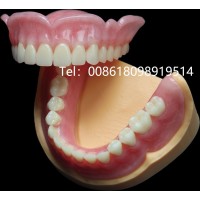
Droichead Zirconia Plu
$10.00 -

E.max crown, Veneer, I
Inquiry -

ReSiC Beams/plates/bur
$16.00 -

RSiC Slabs Boards Tile
$15.00 -

RSiC Batts as Kiln she
$15.00 -

RSiC Tube by recrystal
$10.00 -

RSiC Kiln Furniture (B
$16.00 -

RSiC Burner Nozzle Fla
$18.00 -

RSiC Beam Support Pill
$16.00 -

RSiC plate Slab Board
$15.00 -

NSiC Tube Pipes by Nit
Inquiry -

used excavator hudraul
$16600.00 -

NSiC Thermocouple Prot
Inquiry -

Stalk Riser Tube for L
Inquiry -

NSiC Ceramic Heater Pr
Inquiry -

RSiC NSiC Ceramic Kiln
Inquiry -

used excavator hudraul
$11500.00
Product parameters
closure
This shop is operated by agent
- Set up shop
- Authorized by Manufacturers & Suppliers online marketplace B2B platform GongWong.com, can provide agency service
- Service Introduction
- Authorized product, Internet cloud promotion service integrating certification promotion and procurement inquiry
- Intelligent website construction
- PC terminal + mobile terminal, create a cost-effective corporate website!
closure